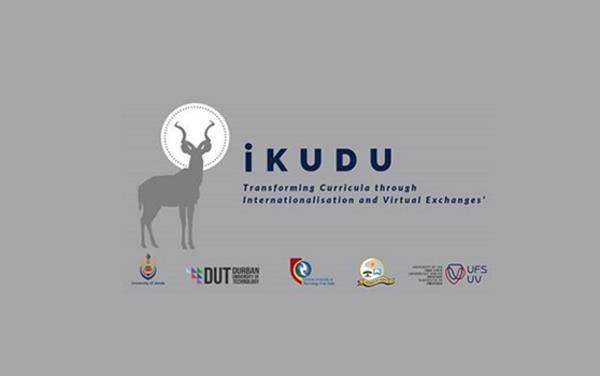iKUDU: developing the concept of Internationlisation of the Curriculum through COIL virtual Exchange projects between South African and European Higher Education Institutes
The iKUDU project is an EU-funded capacity building project focused on setting up a community of practice on COIL and the role that this can play in the internationalisation of the curriculum.
Centre of Expertise Global and Inclusive Learning

The iKUDU project is an EU-funded capacity building project focused on setting up a community of practice on COIL and the role that this can play in the internationalisation of the curriculum. It involves 10 Higher Education Institutions, five in South Africa and five in Europe, including THUAS. The project consists of two main teams.
The project is an EU-funded capacity building project focused on setting up a community of practice on COIL and the role that this can play in the internationalisation of the curriculum. It involves 10 Higher education Institutions, five in South Africa and five in Europe, including THUAS. Among these universities there is great diversity, both in types of universities involved, as in expertise on COIL and on internationalisation. In South Africa two universities are historically disadvantaged universities, two are universities of Technology and one is a Research University. In Europe there are three research universities and two universities of applied science. iKUDU aims to use this diversity in order to create a South African concept of IoC, which will be embedded in the broad context of the curriculum.
The project consists of two main teams. The first focusing on the desired state of internationalisation of the Curriculum at all participating universities through the process of an appreciative inquiry. This approach is chosen to consider the specific context of each university and allows each university to go through the stages in order to reach an outcome that is based on learning from each other but focused on the specific context of each university.
The second team is focused on the coil projects themselves. It aims to establish 55 coil projects over the course of three years, reaching over 5000 students and over 80 academics. This includes inviting academics to 'coil' their course. Partnering these academics in North-South partnerships. Training these academics to help setup their 'coiled' courses and evaluate these courses afterwards.
The above approach aims to reach different stakeholders. Firstly, students will be able to participate directly on a coiled course and connect which will aim to create cultural understanding and development of skills to live and work in a multicultural and interconnected world. Secondly Academics will be trained to learn from both best practices and their owninvolvement to be equipped to individually setup and run COIL courses. Thirdly university staff and leadership will be able to place internationalisation of the curriculum in the right context for their university, and the role that COIL can play in this. Fourth the established community of practice will foster international north south relations for years to come. All stakeholders (teaching staff, academic support staff, administrators, researchers, students, and university leaders) will become ambassadors for curriculum internationalisation and virtual exchanges in the higher education context.